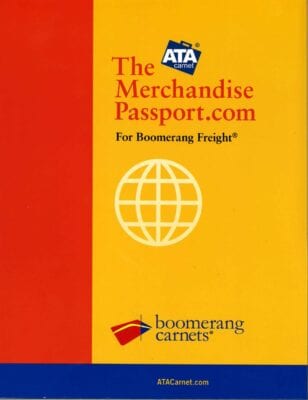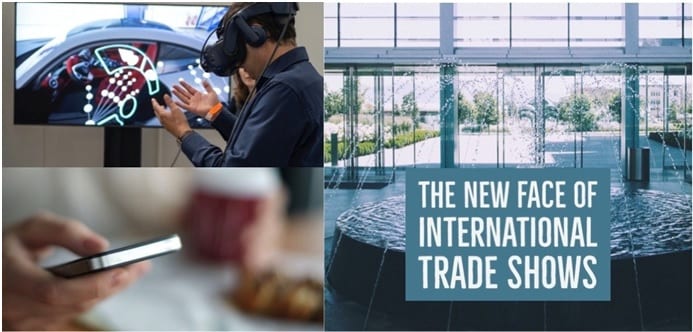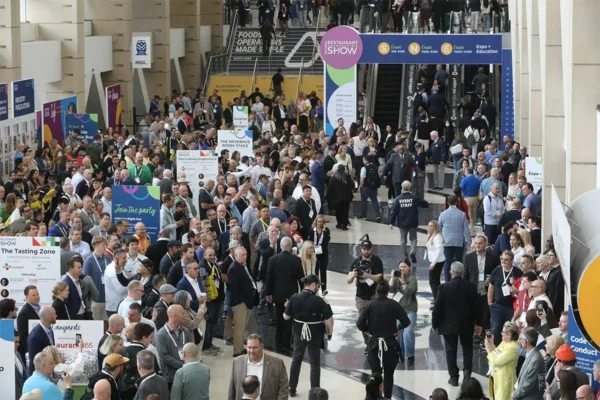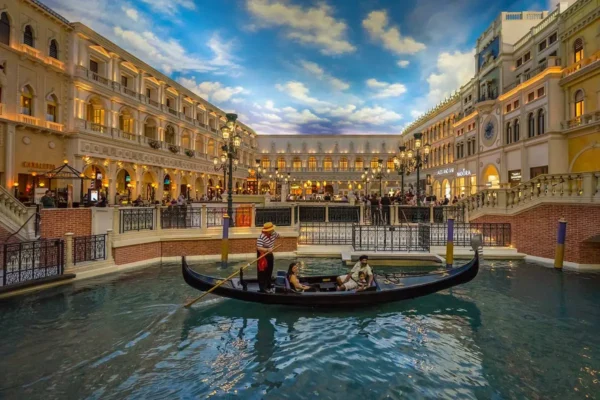by Anva Nuguid, marketing asst., Boomerang Carnets
The international tradeshow is one of the most powerful tools in presenting products to new audiences and markets. Though there are now a few trickles of life in Asia, Europe and the U.S., the trillion-dollar worldwide industry is, for the most part, still on hold. This past July, Richard Paullin of The International Trade Show Association of Greater Chicago invited Larry Kulchawik, a longstanding professional in tradeshow marketing, to discuss the new face of tradeshows in the ongoing give-and-take transition the industry is experiencing due to Covid-19. “International involvement is essential to future stability of businesses and for growth,” Kulchawik says.
The Global Association for the Exhibition Industry (UFI) released guidance on re-opening tradeshows with a framework of recommendations on how to operate exhibitions/trade fairs in a safe environment, addressing personnel and personal safety, physical distancing, health and safety measures, as well as implementation of crowd control and enforcement measures. A new accreditation system was also developed by Global Biorisk Advisory Council®, GBAC STAR™, as the cleaning industry’s only outbreak prevention, response and recovery accreditation for facilities. Many major hotels have already signed on.
Tradeshows are a theatrical experience for attendees with innovative booths, sounds, lights, displays and face-to-face spontaneous meetings. Adjustments of behavior, entry screening, spacing protocols and one-way aisles, sponsors offering their logos on masks, and hand sanitizing stations throughout the space will become the norm for now. There are also vendors devising new architecture of booths to accommodate distancing guidelines. Hybrid events are also showing up offering participants the choice to be present virtually, physically at the venue, or with a healthy combination of both.
With his many years of experience, Kulchawik believes that our emotional and tactile response to interacting with someone helps determine future business. “People like doing business with people that they like and trust,” he says, “and one of the most powerful elements that a tradeshow offers is meeting people in person face to face.” Kulchawik predicts that virtual call platforms will get better so that online interactions will seem more real but confirms that no matter how good they improve; they will never replace face–to–face, in–person interactions.
 Things that will certainly change are that less money will be spent and the industry will be operating on skinny budgets, digital communications will up the ante on clarity and sound so that it is a more emotional experience for people, micro events with smaller venues and less people will happen more, and prescheduled meetings will be the norm. International tradeshows will continue to grow and recalculating your strategy for global marketing is essential.
Things that will certainly change are that less money will be spent and the industry will be operating on skinny budgets, digital communications will up the ante on clarity and sound so that it is a more emotional experience for people, micro events with smaller venues and less people will happen more, and prescheduled meetings will be the norm. International tradeshows will continue to grow and recalculating your strategy for global marketing is essential.
Shipping a tradeshow booth internationally is convenient and affordable with “The Merchandise Passport,” a.k.a. an ATA Carnet (pictured right). The ATA Carnet is an internationally accepted customs document for the temporary import/export of goods which includes commercial samples, professional equipment and goods for exhibitions, providing you significant savings of import-duty and tax. Its many benefits have assisted companies expand into new global markets and its flexibility can easily accommodate these changeable times.
Corporation for International Business, a wholly owned subsidiary of Kernow Capital Corporation, is one of several KCC affiliates specializing in ATA Carnets and Customs Duty guarantees. CIB is headquartered in Barrington, Illinois, Founded 20 years ago, CIB was established to issue and provide claims services for ATA Carnets as a Carnet Service Provider for the U.S. Council for International Business. CIB has grown to the largest carnet-issuing office in the U.S. and is proud of a 45 percent market share. CIB has satellite locations in California, Texas, Montana and Florida. For more info, visit www.atacarnet.com






























